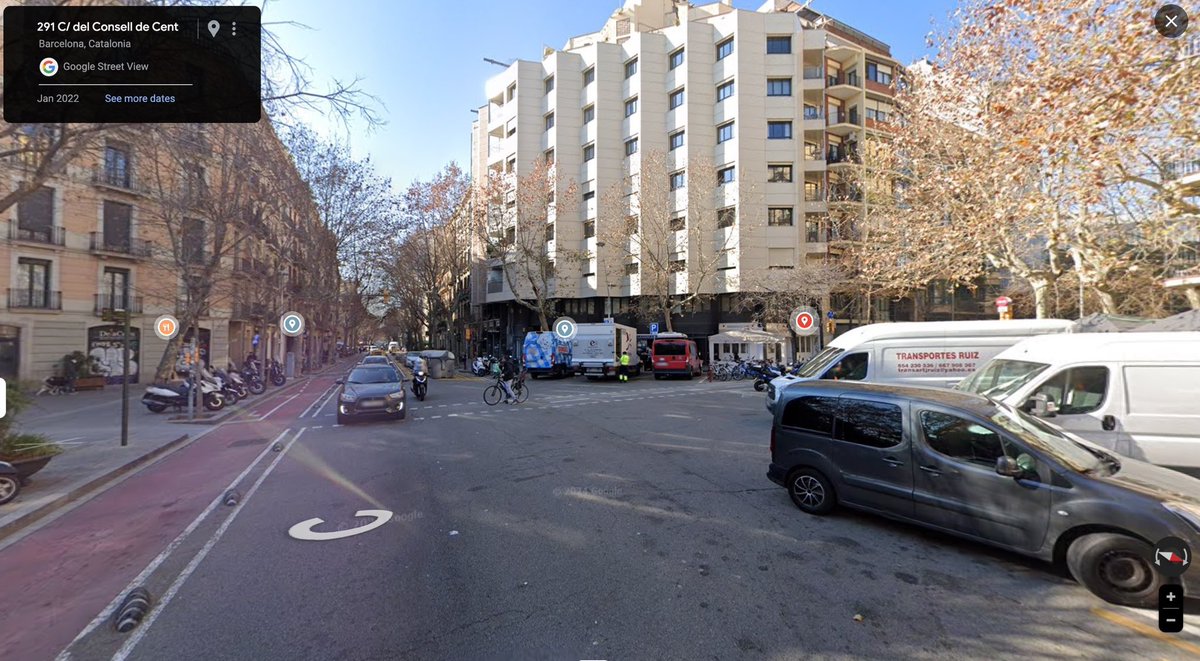this got talked about a lot when I worked on google maps.
I would personally love this feature, and it’s technically feasible.
here’s why I fought it loudly every time it came up
🧵
I would personally love this feature, and it’s technically feasible.
here’s why I fought it loudly every time it came up
🧵
https://twitter.com/FedericoNoemie/status/1802070267906376030
google maps has over a billion users around the world.
it is truly a global product operating at a scale that’s nearly incomprehensible.
that kind of scale changes the way you have to think about product development — and specifically about nth order effects.
it is truly a global product operating at a scale that’s nearly incomprehensible.
that kind of scale changes the way you have to think about product development — and specifically about nth order effects.
the google maps routing algorithm selects the fastest route between your location and your destination.
that means every segment of the street network has an equal chance at being traveled, given the commonality of location/destination deltas and street segment connectivity
that means every segment of the street network has an equal chance at being traveled, given the commonality of location/destination deltas and street segment connectivity
the current algo is basically objective.
any shift towards “nice” or “scenic” routes is going to take some new subset of variables into account; beautiful architecture, street trees, etc.
this naturally introduces bias to the system (again, at global scale)
any shift towards “nice” or “scenic” routes is going to take some new subset of variables into account; beautiful architecture, street trees, etc.
this naturally introduces bias to the system (again, at global scale)
on its own, this bias isn't necessarily a bad thing, but let's examine the shape of this bias...
ask yourself: between these two streets, which one is this new 'scenic' route algorithm going to choose?


ask yourself: between these two streets, which one is this new 'scenic' route algorithm going to choose?


now ask yourself:
which of those streets is likely the higher income community?
city planning (my former profession) has mountains of research on these correlations.
eg low-income communities in the US have 41% fewer trees than high-income communities
which of those streets is likely the higher income community?
city planning (my former profession) has mountains of research on these correlations.
eg low-income communities in the US have 41% fewer trees than high-income communities

but it's not just the US, this pattern generalizes to nearly every city around the world.
ncbi.nlm.nih.gov/pmc/articles/P…
ncbi.nlm.nih.gov/pmc/articles/P…
you see where this is going:
because of its global scale, even a small shift in maps routing from a seemingly-innocuous (and frankly very useful!) feature could create a reinforcing feedback loop with spatial inequality.
because of its global scale, even a small shift in maps routing from a seemingly-innocuous (and frankly very useful!) feature could create a reinforcing feedback loop with spatial inequality.
inadvertently diverting foot traffic from low-income streets to high-income streets takes revenue and potentially tax dollars from already struggling communities and funnels it instead to richer communities.
always remember:
we live (and build tools) in complex systems.
always remember:
we live (and build tools) in complex systems.
for context: ime this idea was usually discussed with regard to walking navigation specifically.
additional context: I am sharing my opinion and my opinion alone, which doesn't reflect the perspective of the company. I was not the person who would have decided if this feature got built or not.
• • •
Missing some Tweet in this thread? You can try to
force a refresh








